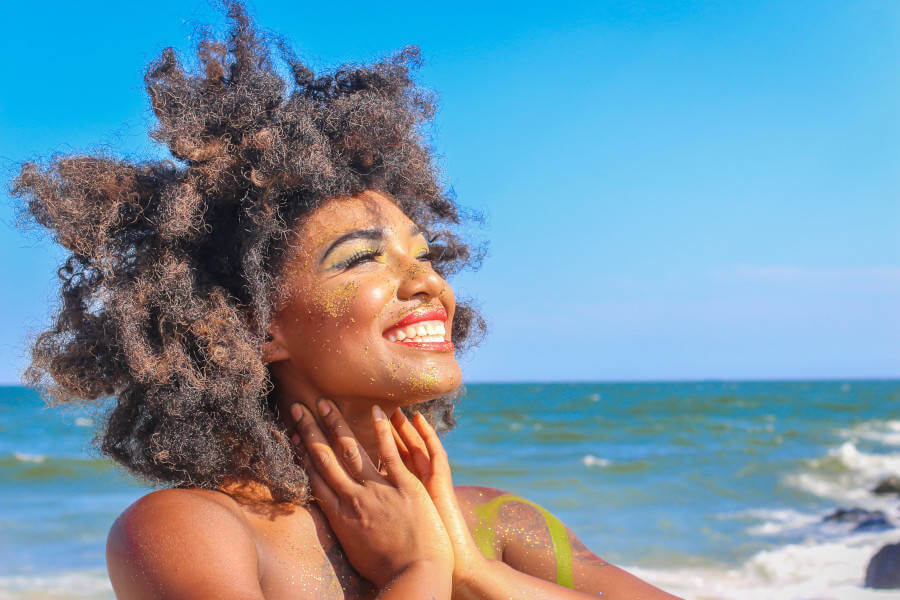Fitness & Wellness
You Could Thank Your Genetics For That Natural Glow
Glowing Skin & DNA
The beauty and skincare business is saturated with products that make glowing skin appear not only possible but also necessary. Anti-wrinkle creams, acne meds, and high-priced facials: whatever the skin problem, there’s a product that claims to solve it. According to statistics, skincare accounts for 36% of the worldwide cosmetic market. However, store-bought and prescription cosmetics aren’t the only things that help keep skin looking good. Human DNA also has an impact on how our skin looks and behaves, although researchers are still debating how much of our skin’s health is influenced by our genes, and research into which genes influence our skin’s appearance is still in its early stages. There are about 25,000 different genes that are found in our bodies. These genes control everything about us, including how our skins act. Our skin type, skin problems, and, to some extent, wrinkles are all genetically determined. When genes function properly, they control skin cell growth, instructing the body to produce new skin cells as old ones die. When it doesn’t work properly, or when you make too little or too much of a particular signal, it can cause cells to grow too quickly, clogging the skin and causing acne, or limit the skin’s ability to repair and rebuild after an injury, according to Adam Friedman, professor of dermatology at George Washington School of Medicine and Health Sciences. Friedman claims that gene mutations, which are changes to a gene’s normal structure and function, have been discovered in several skin disorders ranging from eczema to melanoma. Hugo Hecht, a researcher, discovered in 1960 that acne does have hereditary components. While there is no such thing as an acne gene, Hecht discovered that acne runs in families and is more difficult to treat when there is a family history. Today, thanks to further study, there are a variety of therapies available for reducing the severity of acne, one of the most frequent skin disorders, even when it is genetic. Even if you’ve won the genetic lotto in certain ways, external conditions have a direct impact on how your skin looks and functions, eventually affecting your skin’s general health and appearance. Sun damage, pollution, and smoking can add years to your face, as shown in a 2009 study that analysed nearly 200 sets of identical twins. For example, UV exposure causes 80% of apparent face ageing symptoms such as deep fine creases and discolouration, or sunspots. In a 2009 study, researchers discovered that stressful situations can accelerate the ageing process. Due to stress, divorced women in the study seemed 1.7 years older than twins. Inflammatory conditions such as acne and psoriasis have reportedly been related to stress in the past. Increased expression of particular genes has an influence, according to a study published in the Journal of the American Academy of Dermatology in 2017. Certain proteins prevalent in healthy skin were identified in both young women’s skin and the skin of women who were older but had a complexion that made them look much younger than they were, according to the study. The researchers wanted to see if the genes that were activated in persons with younger-looking skin had distinct patterns than those in people of a similar age. They found increased activity in genes related to DNA repair, cell replication, oxidative stress response, and protein metabolism in women who appeared younger than their age, as well as higher expression of genes related to mitochondrial structure, metabolic activity, and epidermal structure. All these can influence skin appearance. Friedman believes that a study like this is useful in figuring out how to control our genes to improve our health and even our skin’s beauty in the future. However, even if we are genetically predisposed to some extent, a healthy skincare regimen can help us obtain good skin in the meanwhile. Topical retinoids and alpha hydroxy acids, which promote cell turnover and combat acne and signs of ageing, as well as sunscreen to prevent signs of ageing, moisturiser to make the skin look younger, and topical retinoids and alpha hydroxy acids, which promote cell turnover and combat acne and signs of ageing, have all been shown to make a difference.
Ways to get a glowing skin
1. Complete the skincare routine & you will get a glowing skin

Your skincare routine is your skin’s first line of protection in terms of health and ageing concerns.
2. Balance diet and exercise
Add a lot of fruit and veggies to your diet, this will provide your skin with nutrients
3. Quit smoking
Smoking raises your risk of developing skin cancer by 52%. It also promotes wrinkles and reduces skin circulation.
4. Always SPF
Because sun damage contributes up to 80–90% of ageing, protecting your skin is one of the best things you can do.
5. Beauty Sleep
Aim to get a solid 7 to 8 hours of restful good night’s sleep, this allows your skin to renew and rejuvenate. Learn more about how our DNA test can help you. It’s considered the most advanced DNA test in Malaysia that we can provide, so we’d like to offer you our premium DNA test. You can take advantage of this offer and reap the benefits of getting a DNA test.


